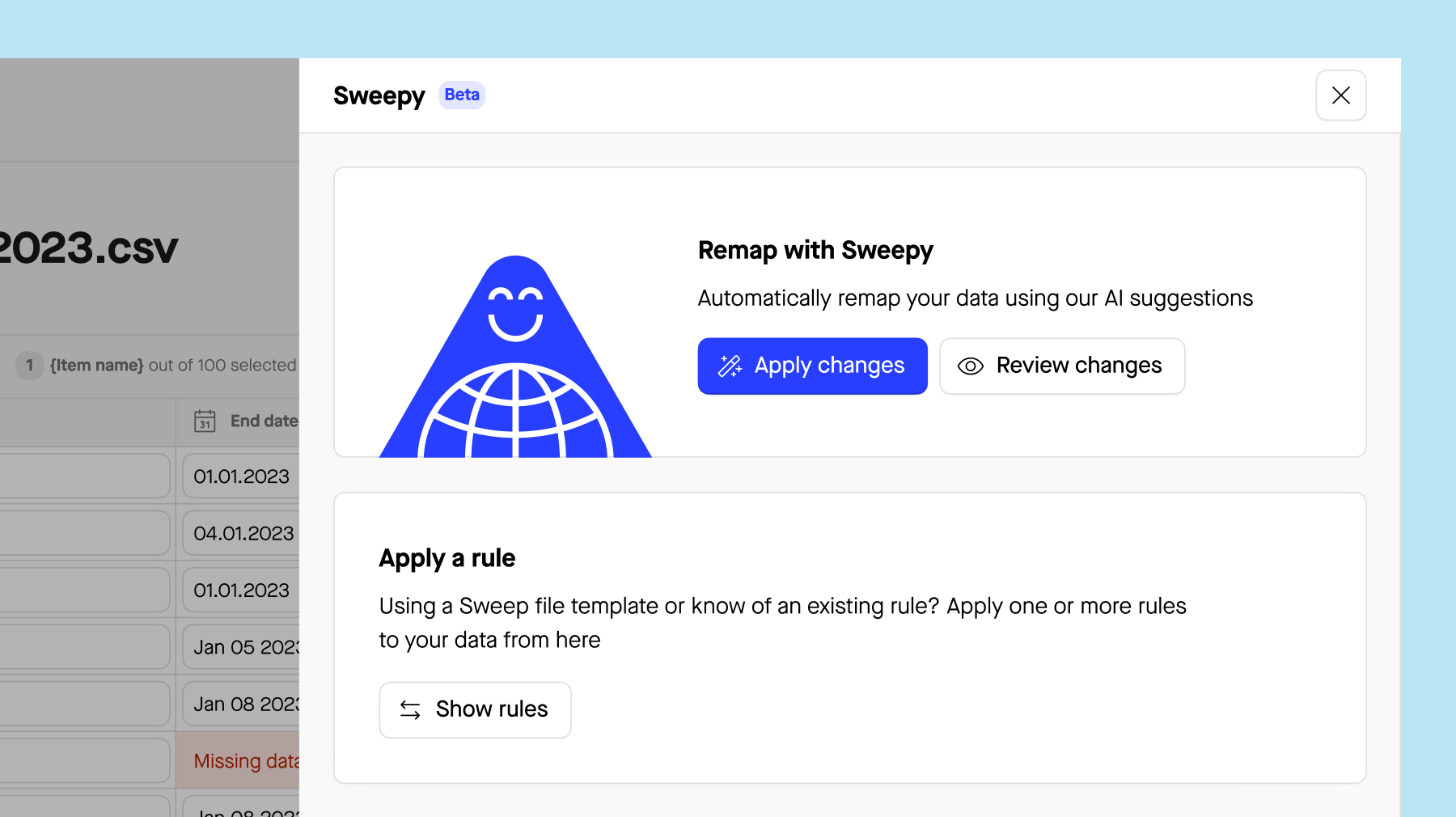Streamlining ESG data management using AI


- Author
- Julien PicaudDirector of Product Marketing
- Category
- Climate Essentials
- Topics
- AI
- Published
- 25 March 2024
We take a look at how AI can ease the burden of ESG data collection and management.
If you're facing hurdles on your company's sustainability journey, you're not alone. A recent KPMG survey found that nearly half of companies still rely on spreadsheets to manage their ESG data. Here are some of the top challenges encountered, which might sound familiar.
Environmental Data
Data collection complexity
The diverse sources and formats of Scope 1 and 2 emissions data, including direct emissions from owned or controlled sources (Scope 1) and indirect emissions from purchased electricity, heat, or steam (Scope 2), make data collection a complex and time-consuming process. Companies struggle to aggregate and standardize data from various operational sources, such as facilities, vehicles, and energy suppliers, leading to inefficiencies and inaccuracies in reporting.
Manual processes
Many organizations still rely on manual data entry and spreadsheet-based systems for Scope 1 and 2 emissions reporting, resulting in errors, inconsistencies, and inefficiencies. Manual processes are not only prone to human error but also lack scalability and real-time insights, hindering organizations' ability to track and manage their environmental impact effectively.
Convoluted supply chains
Scope 3 emissions, which encompass indirect emissions from sources such as purchased goods and services, business travel, and employee commuting, present unique challenges for data collection across the entire supply chain. Companies often struggle to collect comprehensive and accurate emissions data from suppliers and partners, as data availability, reliability, and transparency vary widely across different industries and regions.
Lack of standardization
The absence of standardized reporting frameworks and metrics for Scope 3 emissions poses challenges for companies seeking to assess and report their supply chain impact accurately. Without clear guidelines and benchmarks, organizations face difficulties in measuring and disclosing their Scope 3 emissions, making it challenging to identify and prioritize emission reduction opportunities effectively.
Social and governance data
Companies often struggle with the fragmented nature of social data sources, including employee diversity metrics, labor practices, and community engagement initiatives. Gathering and standardizing this data across different departments and geographic locations can be a daunting task, leading to inconsistencies and gaps in reporting. Additionally, ensuring data accuracy and integrity is challenging, particularly when relying on manual processes that are susceptible to errors and biases.
Navigating the evolving landscape of governance requirements and stakeholder expectations adds another layer of complexity, requiring companies to stay abreast of regulatory changes and emerging best practices.
Solving the data problem
Navigating these challenges requires a strategic approach and investment in technology solutions that would ease the burden.
And it’s here that the power of AI is undeniable, offering advanced capabilities for processing vast amounts of data quickly and accurately. In sustainability journeys, AI can streamline sustainability management by automating data collection, analysis, and reporting processes, ultimately enhancing decision-making and driving meaningful progress towards environmental goals.
Let’s take a closer look at how this works in Sweep’s platform.
ESG data management powered by Sweep AI
Seamless integration with IT systems:
Our platform seamlessly integrates with diverse IT systems, simplifying data collection for carbon and ESG reporting. Sweep AI automatically converts imported files into required formats, reducing manual efforts and the risk of human error.
Anomaly detection for data integrity:
Our AI algorithm detects anomalies to ensure data integrity and accuracy, allowing your team to focus on making decisions based on reliable data.
Streamlined workflows for efficiency:
By streamlining workflows and automating tasks like data cleansing and survey response generation, Sweep AI enhances the efficiency and impact of your sustainability reporting.
Find out more today.

More stories
Track, report and act
Sweep helps you get your carbon on-track
Sign up to The Cleanup, our monthly climate newsletter


© Sweep 2024


